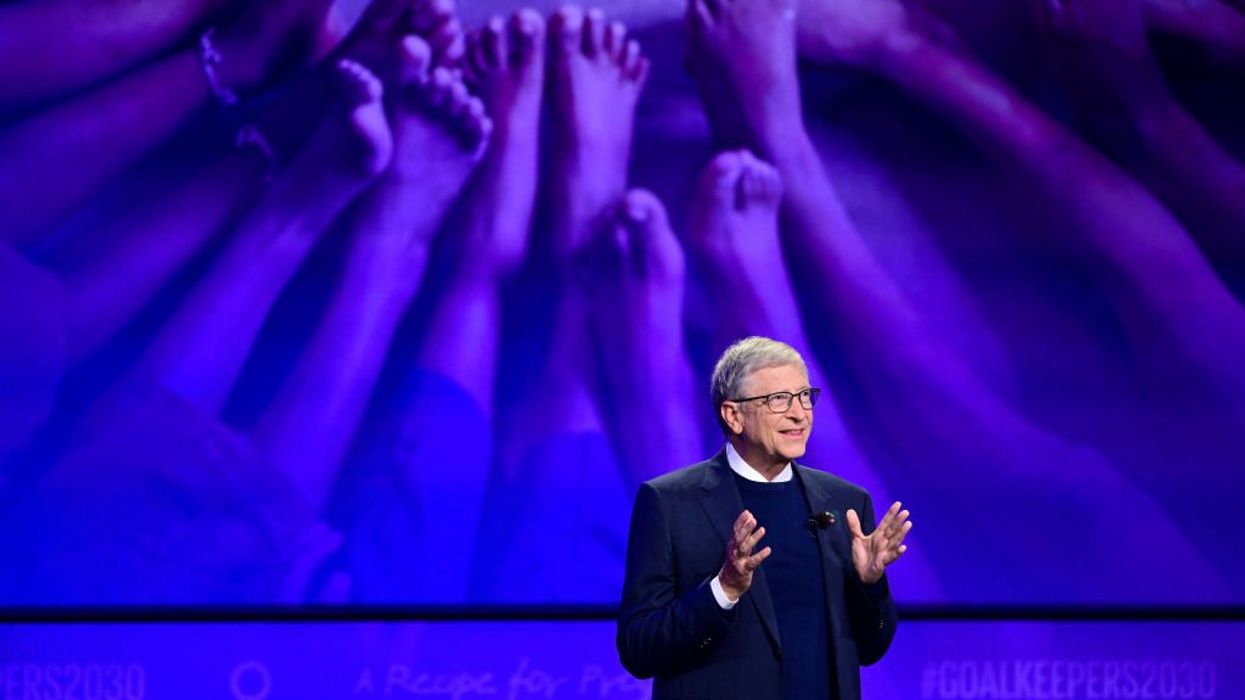
© 2024 Blaze Media LLC. All rights reserved.
Yesterday, the news world was abuzz with reports that President Barack Obama and U.K. Prime Minister David Cameron had agreed to combat rising fuel prices with a release of strategic oil stocks.
 President Barack Obama and British Prime Minister David Cameron at an NCAA tournament basketball game Tuesday (AP Photo/Carolyn Kaster)
President Barack Obama and British Prime Minister David Cameron at an NCAA tournament basketball game Tuesday (AP Photo/Carolyn Kaster)
“A formal request from the United States to the UK to join forces in a release of oil from government-controlled reserves is expected ‘shortly’ following a meeting on Wednesday in Washington between President Barack Obama and Prime Minister David Cameron, who discussed the issue,” Reuters reports.
Officials in the Obama administration, including Energy Secretary Steven Chu and Treasury Secretary Timothy Geithner, have gone on record saying that the White House has considered a U.S. oil release as a means of combating the rising price of oil.
Two sources in the White House confirmed this claim, saying that Britain would respond “positively” to the request, The Blaze reported.
However, almost immediately after news of the U.K.-U.S. “agreement” broke, White House press secretary Jay Carney emphatically denied everything.
“Among the many topics of discussion the British prime minister and president had were energy issues and the situation globally with the rise in the price of oil,” White House spokesman Jay Carney said, according to the Washington Post, but added: “I can say very clearly that the report” that there was an agreement on releasing the SPR “is false. It is not accurate.”
“The report of any kind of agreement or timetable associated with an agreement on a course of action is just wrong,” Carney added.
But let’s put aside the conflicting reports for a moment and ask the bigger question: would releasing the emergency oil supply really help oil prices?
For an answer to this question, we turn to Eric McWhinnie of Wall St. Cheat Sheet:
After falling on the reserve release news, major oil players such as ConocoPhillips, Chevron Corp., ExxonMobil Corp. and BP pared losses after U.S. officials and White House sources denied the reserves report and called it inaccurate.Some analysts have speculated in recent weeks that oil reserves would be released due to high prices at the pump and the usual election year politics.
However, as the chart from The Big Picture shows below, a slight increase in crude supplies from strategic reserves have failed to stem longer-term price rises in oil.
 Photo Source: Wall St. Cheat Sheet
Photo Source: Wall St. Cheat Sheet
The previous announcement to release inventories from the Strategic Petroleum Reserve came last year on June 24. The release totaled 60 million barrels globally and half of that came from the U.S.At the time of the announcement, oil traded at $91 per barrel. Oil increased to above $97 until the actual release of the reserves on July 15. Even with the added oil supply, oil prices only fell to $88 per barrel by the time the emergency release was completed. Since then, oil prices have found a firm footing above $100 per barrel.
(Related: Is Google Still Searching for the Winning Formula?)
According to the U.S. Energy Information Administration, the U.S. consumes about 19 million barrels of crude oil every day. A 30 million barrel release was not even enough to cover our energy needs for two days.World oil consumption is around 85 million barrels per day, meaning the previous total emergency release of 60 million barrels was not enough to cover just one day of world consumption.
"Like before," McWhinnie concludes, "another release from the Strategic Petroleum Reserve is not likely to have a large or long lasting impact on crude prices."
[Editor’s note: portions of the above are from a cross post that originally appeared on Wall St. Cheat Sheet.]
Want to leave a tip?
We answer to you. Help keep our content free of advertisers and big tech censorship by leaving a tip today.
Want to join the conversation?
Already a subscriber?
more stories
Sign up for the Blaze newsletter
By signing up, you agree to our Privacy Policy and Terms of Use, and agree to receive content that may sometimes include advertisements. You may opt out at any time.
© 2024 Blaze Media LLC. All rights reserved.
Get the stories that matter most delivered directly to your inbox.
By signing up, you agree to our Privacy Policy and Terms of Use, and agree to receive content that may sometimes include advertisements. You may opt out at any time.


